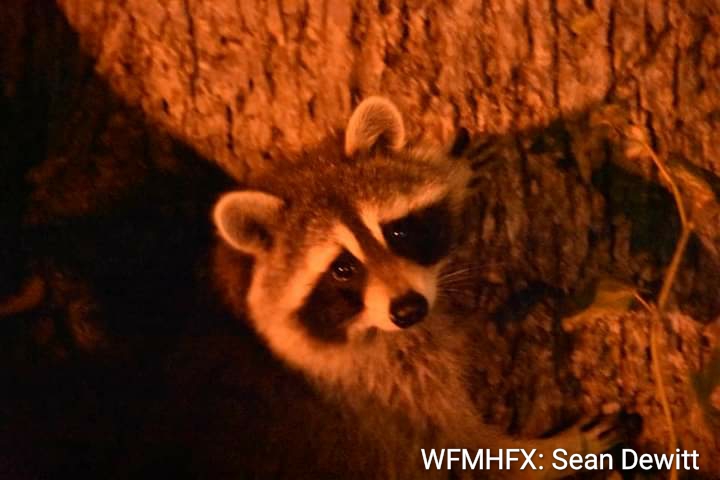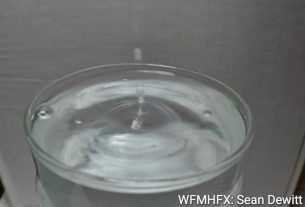**** Info via the Toronto Wildlife Centre
How to raccoon-proof your garbage
The smell of food coming from human garbage, compost, and recycling is irresistible to raccoons. Don’t worry, it is possible to prevent raccoons from getting into garbage cans.
Keep garbage secure
Keep your garbage inside until pick-up day—organic waste can be kept in a freezer to reduce smells. If garbage cans must be kept outside, store them in a closed shed or garage, or build a wooden lock-box with a padlock to hold the cans. Bungee cords can keep bins closed, but make sure to take them off the morning of garbage pickup.
Don’t leave it out overnight
Raccoons are nocturnal, so waiting until the morning of garbage pickup to put out your bins can prevent them from getting in.
Keep garbage off the ground
Raccoons can get into garbage cans by tipping them over and knocking open the lids. Bins with handles (like City of Toronto green bins) can be hung from a wall with a bicycle hook or a bungee cord.
Keep garbage clean
In cities with a compost program, food waste should go in the green bin. Rinse all recycling and other garbage before putting it in the right bin. Unwashed recycling and garbage not only attract wildlife, but can also hurt them: raccoons can get their heads or paws permanently stuck in cans, jars, and bottles.
Raccoon-proof your compost bin
If you compost in your backyard, here’s a great article about animal-proofing your compost bin or heap.
Raccoons “trapped” in a garbage can
Raccoons are excellent climbers, and are almost never “trapped” inside a garbage can, even the big wheeled garbage and recycling bins. If the raccoon seems alert and uninjured, leave it alone and check to see if it’s still there the next day. Most raccoons will leave overnight, especially if you leave the lid to the bin propped open. There are a few exceptions to this:
Baby raccoons in a garbage or recycling bin
The large, wheeled garbage and recycling bins used in Toronto and other municipalities are very popular spots for mother raccoons to have their babies! They’re dark, sheltered, and they smell wonderful to a raccoon. If you find tiny baby raccoons in your recycling or garbage bin, please leave them alone. Their mother will probably move them tonight, especially now that her hiding spot has been discovered. If they haven’t left by morning, you can prop the lid open tomorrow—that should be enough to convince her to move along and take her babies with her!
If you’ve already taken the babies out of the bin, follow the instructions here to try to give the mother raccoon a chance to come back for her babies. Raccoons are very good mothers, and she will be frantically looking for them!
Teenage raccoons in a garbage or recycling bin
Sometimes smaller raccoons can get trapped in the bottom of the largest garbage and recycling bins. If the raccoons are small but furry, have their eyes open, and are crying, you can help them find a way out. Tip the bin over, or prop the lid open and put in a branch or board, or tie a sheet or towel to the handle of the bin and drape it inside. Leave the raccoon alone—it may not leave until it gets dark and it feels safe.
Raccoons trapped in a dumpster
Even adult raccoons can get trapped in empty dumpsters. Unless the raccoon is injured, the best thing to do is provide it with a way out! A ladder, a board, a branch, or a sheet tied to the dumpster handle and draped inside will give the raccoon a way to climb out. The raccoon probably won’t leave while people are watching, and may wait until it gets dark, so back away and check on it later.




